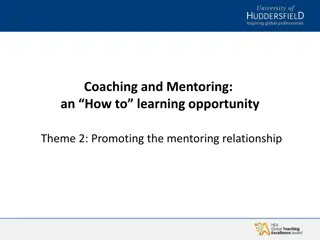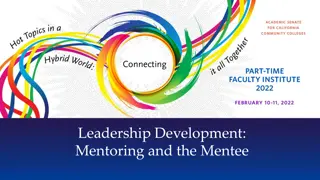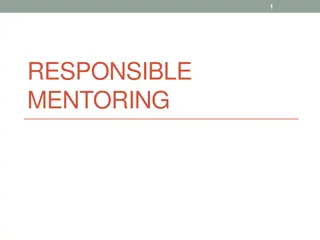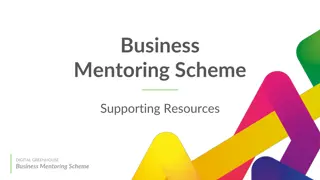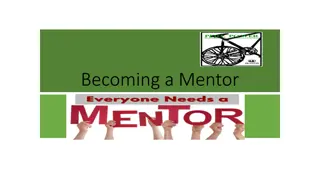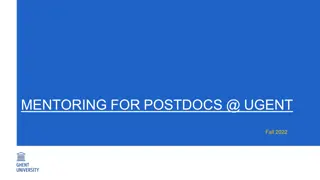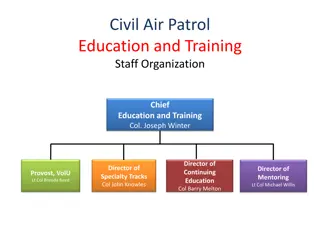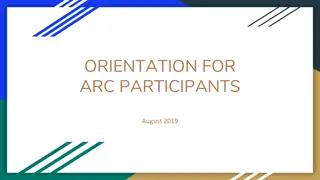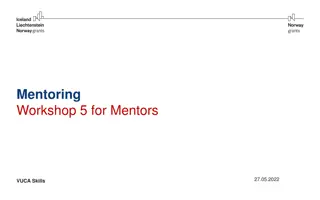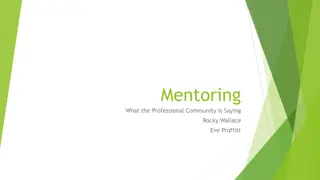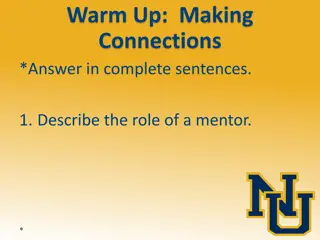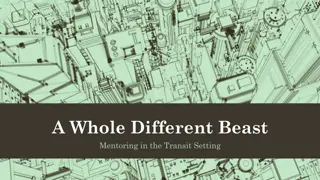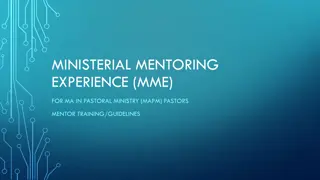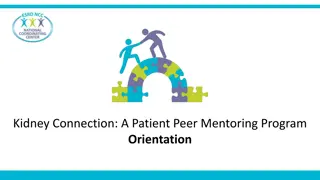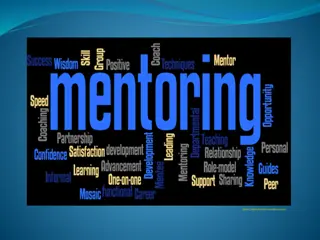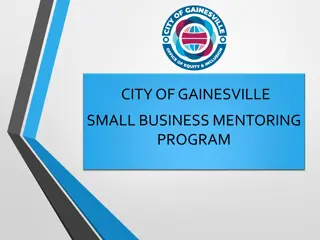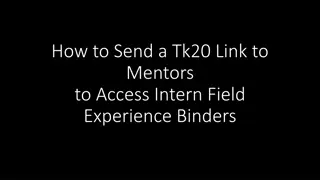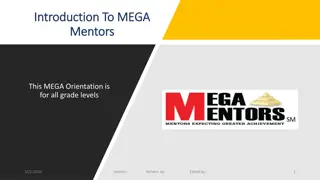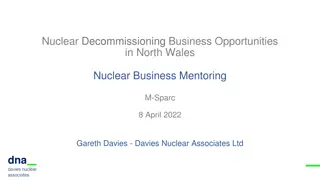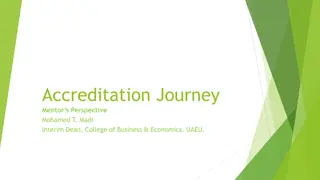Exploring Effectuation: A Mentoring Workshop for Mentors
Dive into the world of Effectuation at the Mentoring Workshop for Mentors on 27th May 2022. Discover the principles, logic, and process of Effectuation, focusing on controllable aspects of an unpredictable future. Explore concepts like Bird-in-Hand, Affordable Loss, Crazy Quilt, Lemonade, and Pilot-in-the-plane to shape your entrepreneurial journey. Engage in discussions on dealing with uncertainty, planning insecurity, and leveraging your core competencies and networks.
Download Presentation

Please find below an Image/Link to download the presentation.
The content on the website is provided AS IS for your information and personal use only. It may not be sold, licensed, or shared on other websites without obtaining consent from the author. Download presentation by click this link. If you encounter any issues during the download, it is possible that the publisher has removed the file from their server.
E N D
Presentation Transcript
Mentoring Workshop 4 for Mentors 27.05.2022 Effectuation
Agenda Effectuation logic Effectuation process Effectuation principles and examples Questions and answers
Opening Question How do you deal with uncertainty and planning insecurity?
Effectuation Logic "Causal processes focus on the predictable aspects of an uncertain future. The logic for using causal processes is: to the extent that we can predict the future, we can control it. Effectuation, on the other hand, focuses on the controllable aspects of an unpredictable future. The logic for using Effectuation processes is: to the extent that we can control the future, we don't need to predict it." Saras Sarasvathy (2001)
Effectuation Process adopted from www.effectuation.org
Effectuation Principles Bird-in-Hand: We work with what we have available now (knowledge, money, ability, contacts). Affordable Loss: We determine an amount of money that we can use now to achieve the desired results. This may mean pursuing other activities to come up with the necessary amount of money. Crazy Quilt: Building my own professional network. It's about new contacts and commitments from potential clients and business partners. Lemonade: We know that something unexpected can happen, we expect it. Pilot-in-the-plane: The responsibility for my development and entrepreneurial results lies with me. If I don't push it, no one else will.
Bird-in-Hand WHO AM I? What are my values and beliefs? What are my passions? What role do I think I should play in society? What value do I want to create in the future? What is important to me? WHAT DO I KNOW? What are my core activities? What do I have superior knowledge about? What do I consider to be my core competencies? What assets do I possess? WHO DO I KNOW? Who do I consider as network partners with whom I can jointly develop new business models? Who do I consider as customers?
Bird-in-Hand: Mind-Map WHAT DO I KNOW? WHO AM I? What are my values and beliefs? What are my passions? What do I think should be my role in society? What value do I want to create in the future? What matters to me? What are my core activities? In what areas do I have superior knowledge? What do I consider my core competences? What assets do I own? my ambition /// mission /// purpose WHO DO I KNOW? WHAT DO I HAVE? Who do I consider network partners with whom I can co-create new business models with? Who do I consider to be our most demanding clients? Who do I know who can help me in areas I don't know that well? Who can provide feedback on new ideas? Who can help me identifying new opportunities? How much money do I have to invest in a business? What equipment and space do I have available?
Crazy Quilt At a very early stage, start contacting other people and invite them as partners or clients. Add to the list "Who do I know?" People who: can help develop a better understanding of markets and customer needs can help develop new ideas can tell who they need to know and who does what are able to pave the way and put you in touch with people who can help you give constructive feedback, challenge decisions and ways of thinking strengthen determination in difficult times and give you a sense of purpose
Qrazy Quilt: Example Number of Interactions Channel Comment 10 people who work in the marketing sector linkedIn Explore new possibilities Explore how I can use this channel to generate awareness Ask for feedback Try to talk to them directly (explore how to make contact) 5 former/potential customers Email Explore what they do Ask: How can I help? 5 former/potential customers Call Explore what they do Ask: How can I help?
Affordable Loss Can I afford (financially) what I have to invest into this idea? Am I aware of the possible negative impact that a failure would have on my current business reputation and operation? How much time of my life am I willing to invest to make this idea work? How can I reduce the potential risk I am taking and still move forward? TIP: Speed before precision! A breakdown of expected income, accounts receivable versus current expenses (business and personal) for the next 3-6 months is sufficient. Result: financial runway - it is clear how much money is available for the next 3-6 months for the project. If there is not enough money available, the question is: What can I do now to earn money?
Q&A QUESTIONS, SUGGESTIONS, COMMENTS?
References and Suggested Reading Sarasvathy, S. D. (2001) Causation and Effectuation: toward a Theoretical Shift from Economic Inevitability to Entrepreneurial Contingency , Academy of Management Review, 26(2), pp. 243 263 Sarasvathy, S. D. (2008) Effectuation : elements of entrepreneurial expertise. Cheltenham, Glos, UK: Edward Elgar (New horizons in entrepreneurship). Links: https://effectuation.org/the-five-principles-of-effectuation
More information: YES! Thinking Space https://youngentrepreneurssucceed.com/thinking-space/


